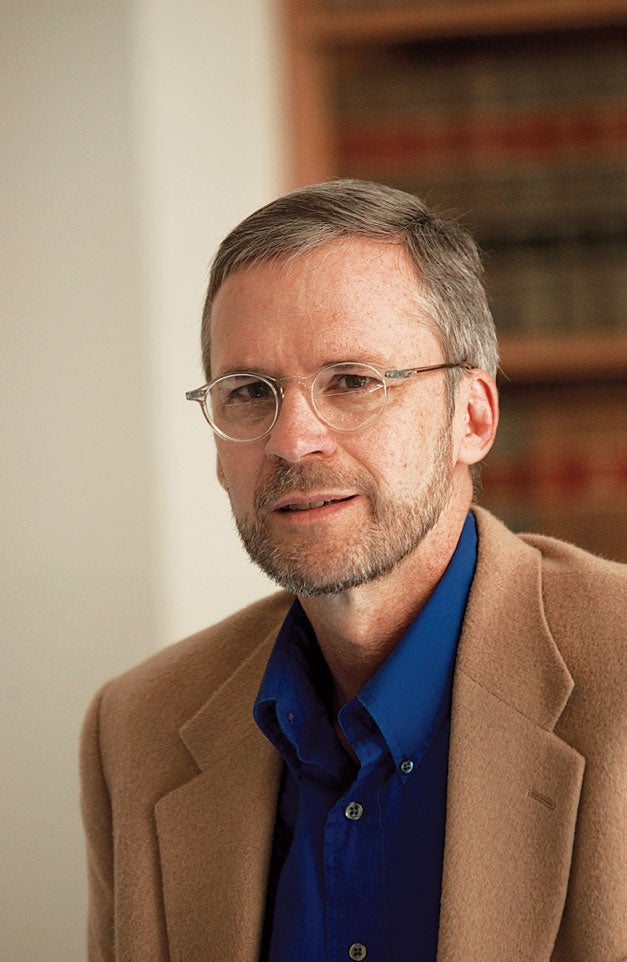William Stuntz, the Henry J. Friendly Professor of Law at Harvard Law School, is an expert on criminal law and procedure and crime policy. He has co-written a casebook on criminal procedure and published numerous articles on all aspects of the criminal justice system, in law reviews, journals, and periodicals. An evangelical Christian, he’s also written on Christianity and legal theory.
Last February, Stuntz launched an evangelical legal blog “Less than the Least,” with David Skeel, a professor at the University of Pennsylvania Law School.
Both men are law professors and evangelical Protestants. “That puts us in a pretty small, and maybe pretty weird, demographic,” Stuntz blogged in his inaugural post. They hope to offer a unique perspective on a variety of issues, without the dogmas that sometimes plague discussions of law and religion.
Stuntz and Skeel met in 1986 when Stuntz was teaching his very first course, a criminal procedure class, at the University of Virginia School of Law. He hired Skeel, a young law student, as his research assistant and the two have remained friends ever since.
According to Skeel’s inaugural post, they chose the blog’s title both from Ephesians 3, where the Apostle Paul calls himself “less than the least of all God’s people,” and from Genesis 32:10. “We use the phrase to signal that we claim no great insight or wisdom on the topics about which we write. Like everyone else, we are stumbling about in the dark, trying to find bits of truth where we can, hoping to participate in a conversation that leads to understanding. And trying to have some fun along the way,” he wrote.
Both men blog a few times a month about the things that interest them professionally and personally. Skeel writes on the culture wars, politics, literature and the arts. Stuntz focuses on some of the same territory, plus crime and criminal justice.
Both men also post on their personal lives. For the past year, Stuntz has been chronicling his battle with two serious illnesses: chronic back pain, from which he has suffered for years, and his more recent struggle with stage-4 colon cancer.
“I want to write about those things, partly because the writing is therapeutic but mostly because the nasty worlds of cancer and chronic pain are mysterious to most people. The latter is no mystery to me, and the former is becoming less so with every passing day. One thing I’ve learned about suffering over the past several years is that it’s all subjective – pains are like snowflakes; no two are alike. My experiences aren’t representative and they aren’t important, save to me and those close to me. But I think, maybe, they offer a window into a world that a lot of people never see. It’s an ugly world. But seeing it is important, if only because so many of us call that ugly world home,” he wrote.
